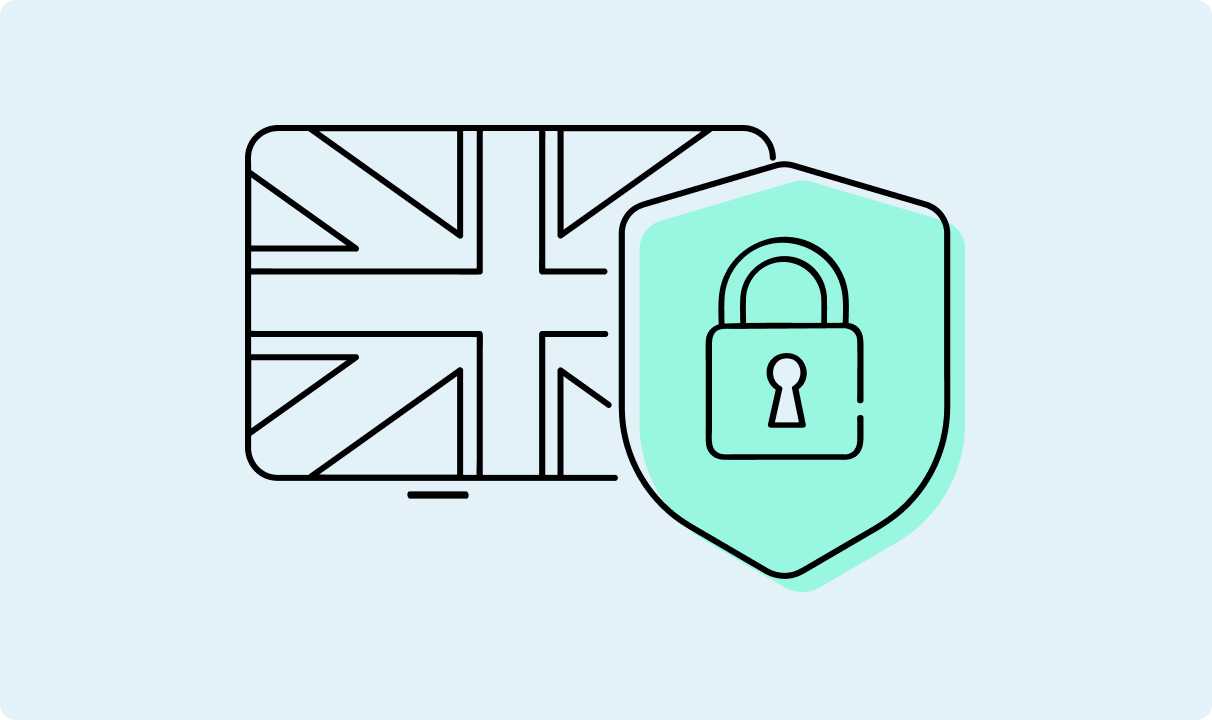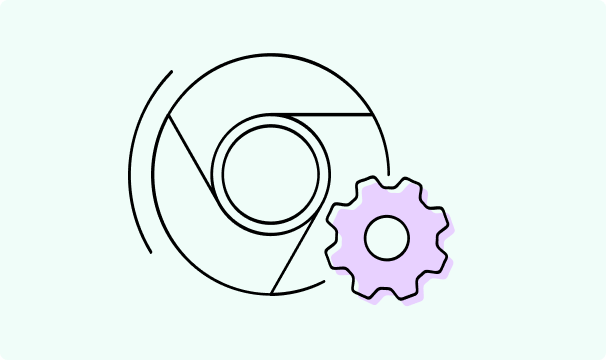What Is The UK Online Safety Act and How It Affects You
Key takeaways:
- The Online Safety Act targets harmful content to protect children.
- VPN use isn’t illegal, but using it to bypass age checks is not recommended.
- While it puts a lot of pressure on content filtering, it also adds rules to protect freedom of speech.
The UK Online Safety Act is one of the biggest laws regarding digital safety passed in the last few years. It came from growing concerns about how online platforms manage harmful content that is easily accessible to minors.
Parents, schools, and other institutions kept talking about how easy it became for kids to see violence, abuse, or inappropriate adult content on social media and the internet in general. Consequently, the UK government stepped in.

Guoda Šulcaitė
4 min read

What Is the UK Online Safety Act?
The UK Online Safety Act is a law passed in 2023. Its main goal is to make the internet a safer place, especially for children. The law places legal responsibilities on companies that provide user-generated content or allow private messaging. It includes social media platforms, search engines, forums, and websites.
The act requires companies to implement measures that would be more effective in detecting and removing illegal content. They also have to take measures to prevent children from seeing harmful material like self-harm posts or pornography.
If companies don’t follow the rules, they could face hefty fines: up to £18 million or 10% of their global revenue, whichever is greater. For big tech companies the 10% could reach hundreds of millions and more in damage.
Also, companies and senior managers at fault may be liable to criminal prosecution, and, in extreme cases (with courts’ help), the UK government can require payment providers, advertisers, and internet service providers to cut all ties with a website.
Why Did the UK Decide on The Online Safety Act?
The UK decided to act after years of rising public pressure. Stories of kids harmed by online content have been a topic of debate for a while. Some families who noticed a drastic change in their children's behavior and well-being linked the cause to dangerous and psychologically manipulative material found on social media.
Reports from all over the country painted a worrying picture. It showed that platforms weren’t doing nearly enough to remove harmful posts or keep children safe. At the same time, online crimes like cyberbullying, grooming, and hate speech were rising fast.
The government noticed that offline, people are protected from threats and harm, but online the rules are different. As such, the Online Safety Act was published to try and fix the situation.
How Does the Online Safety Act Affect You?
If you’re in the UK, this law changes how you encounter and interact with content online. Companies must now verify ages more strictly. So, if you’re under 18, you may get blocked from some content, especially if it’s deemed harmful content.
Adults will see some changes, too. Some content might get filtered or flagged as harmful even if it isn’t illegal. That can feel frustrating, but it’s part of the broader push to reduce online risks for children.
As far as people outside the UK are concerned, the rules still apply if you’re using UK-based services. You might notice content warnings or have to verify your age in more ways, like taking pictures or uploading your ID documents.
If you don’t use any UK-based websites or services, the experience should remain the same as it used to be.
The main focus is on protecting children. Every part of the act circles back to that. If any part of the internet, be it a video, a post, or anything else, can harm a child, companies have to redesign or remove it.
Where Do VPNs Stand Regarding to the Online Safety Act
VPNs are in a grey area, at least in this case. On one hand, they still allow users to bypass location blocks and restrictions. On the other hand, they can be used to avoid age checks or access any content that you want to see.
Under the Online Safety Act, using a VPN to bypass age restrictions, especially for children, is not encouraged. While VPN use itself is legal, it still raises ethical concerns when minors use it to potentially view harmful material. It breaks the spirit and purpose of the law, even if it doesn’t legally break the law itself. Additionally, there may be changes to the law if VPNs are overused to bypass restrictions.
In short, these new regulations are for your own safety and psychological well-being. You can always find loopholes and workarounds, but you wouldn’t be fooling anyone else but yourself.
Make sure you use VPNs for legal activities and use them in a way that benefits you instead of putting you at risk.
UK Online Safety Act and Freedom of Speech
Naturally, some people feared that this law would hurt free speech. But the UK government added rules to protect expression. Platforms must keep a balance between safety and the right to speak freely.
The law says that legal content, no matter how unpopular or controversial, shouldn’t be removed just to avoid complaints. Platforms must explain clearly why something is taken down.
It helps prevent unfair censorship. And if companies fail to do so, the same fines of £18 million or 10% of global revenue apply.
Conclusion
The UK Online Safety Act pushes platforms to take real responsibility for user safety, especially children. It brings new duties, rules, protections, and huge fines for failure to comply.
It changes how you access content. It brings more strict age checks, more content filters, and a closer look on harmful posts. However, it still includes rules to keep free speech alive.
While VPNs can theoretically be used to bypass these restrictions, we strongly advise against that since the law is made for your and your children’s protection.

Author
Guoda Šulcaitė
Growth Manager at CometVPN
Guoda is an all-round marketing professional with deep knowledge in the tech SaaS industry, particularly VPNs and proxies. She has worked on numerous projects and helped achieve impressive results through project management, content production, and SEO.
Related articles
4 min read
Ethernet vs Wi-Fi: Which One is Better?
Ethernet and Wi-Fi are the two main ways to connect your computer to the internet. While Wi-Fi has received significantly more attention in recent years, especially among consumers, due to its simplicity and flexibility, ethernet is still widely used in various other applications.
Even if Wi-Fi is significantly more popular, it isn’t strictly better. Both methods have their benefits and drawbacks. Wi-Fi’s popularity comes from its ease-of-use and flexibility, but an ethernet connection can be much more useful in certain scenarios.

Adomas Šulcas

5 min read
How to Change Chrome Proxy Settings: The Ultimate Guide
A proxy server is an easy alternative to a VPN that can perform most of the functions of the latter. It’s a server that stands between your device and the destination server, taking your connection requests and forwarding them in your name.
Destination servers in almost all cases see the proxy server as the originator of the request. As such, proxies are widely used in various, mostly business-related applications whenever privacy, security, location changing, and several other factors are at play.

Guoda Šulcaitė